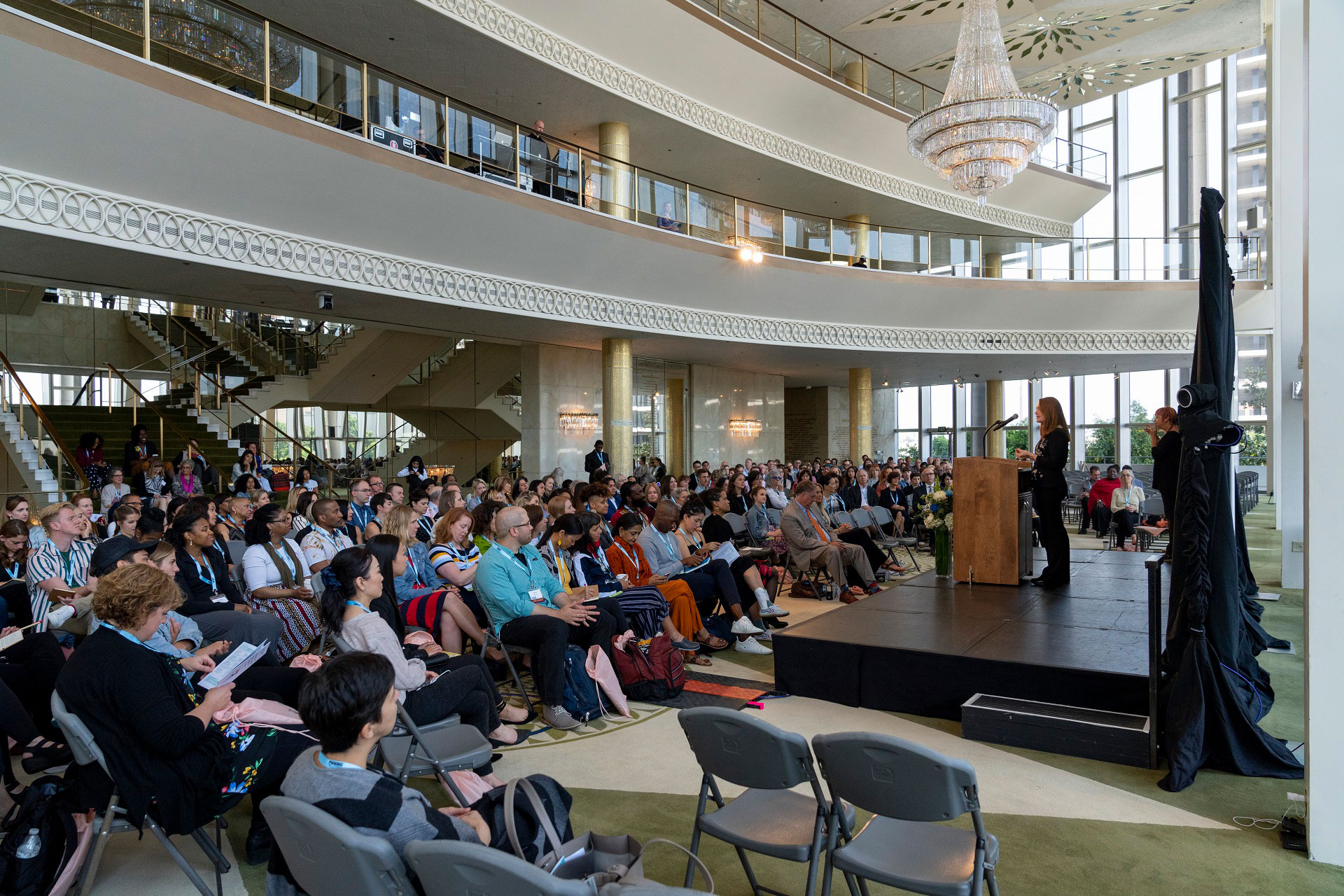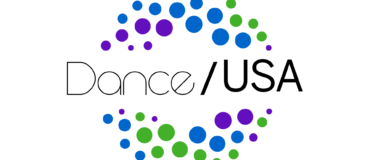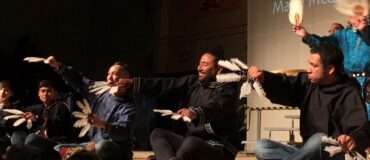Legislative Update: The American Rescue Plan Act Provides Pandemic Relief for the Dance Field
Federal Resources for Pandemic Relief for the Dance Field
By Tony Shivers
 President Biden achieved a significant legislative win during the first 100 days of his administration. On March 11, 2021, he signed the $1.9 trillion American Rescue Plan Act (ARPA) of 2021 that provides comprehensive and much-needed support to businesses, non-profit organizations, states, local governments, tribal governments, schools, families, and individuals dealing with the current pandemic.
President Biden achieved a significant legislative win during the first 100 days of his administration. On March 11, 2021, he signed the $1.9 trillion American Rescue Plan Act (ARPA) of 2021 that provides comprehensive and much-needed support to businesses, non-profit organizations, states, local governments, tribal governments, schools, families, and individuals dealing with the current pandemic.
Additionally, ARPA provides significant support to the arts and cultural sector as it continues to deal with the pandemic. This support is critical as the sector has been one of the hardest-hit industries compared to other sectors of the economy. Since spring of 2020, dance companies, presenters, studios, and non-profit organizations, had to cancel their public events and performances to comply with federal, state, and local public health and safety directives. According to the National Endowment for the Arts (NEA), the arts community has endured some of the nation’s highest rates of unemployment as a result of the current pandemic. While the national unemployment rate for the fourth quarter of 2020 was approximately 6 percent, the rate for dancers/choreographers was 77.8 percent; actors, 47.6 percent; and musicians, 21.5 percent.
Economic data shows that the creative economy makes an important contribution to the overall economy, as well as state and local economies. The U.S. Department of Commerce’s Bureau of Economic Analysis released data in March 2020 that indicates “arts and cultural economic activity accounted for 4.5 percent of the gross domestic product (GDP) or $877.8 billion in 2017 (Arts and Cultural Production Satellite Account, U.S. and States, 2017; March 17, 2020). Furthermore, the sector employed more than 5 million wage‐and‐salary workers who earned $405 billion, representing a larger share of the nation’s economy than transportation, tourism, and agriculture. For the nation to survive economically during the current pandemic and to thrive beyond it, the creative economy must be supported and its creative workers, including dance professionals and dance artists, need to be able to get back to work as soon and as safely as possible. Dance/USA continues to work unilaterally and collaboratively with its arts and cultural sector partners, both for-profit and non-profit, to engage the U.S. Congress and the Biden-Harris Administration for support during these challenging and unprecedented times.
Fortunately, ARPA extends and establishes various pandemic relief programs for the benefit of arts and cultural-related businesses and nonprofit organizations as well as local arts communities, families, and individual creative workers. ARPA additionally provides emergency funding to various federal arts and cultural-related agencies, including the NEA ($135 million), the National Endowment for the Humanities ($135 million), Institute for Museum and Library Services ($200 million), and the Corporation for Public Broadcasting ($175 million). The NEA is expected to release grant application guidelines and related materials pursuant to its emergency funding in April 2021 and to ensure greater equity and access to as many nonprofit arts organizations as possible. The NEA is required to direct 40 percent ($54 million) to state arts agencies to distribute via subgrants and to regional arts organizations. The other 60 percent ($81 million) will be for direct grants to individual entities and will not require cost share/matching funds. It is also expected that grantees can use their grant awards for operational expenses, including salary support, fees for artists or contractual employees, and facility costs.
Apply Now for Latest Paycheck Protection & Shuttered Venue Operators Grant Programs
ARPA provides additional funding for the Paycheck Protection Program (PPP) ($7.25 billion) to support small- and medium-sized businesses of 500 employees or less as well as other smaller entities, including sole proprietors and independent contractors, and the Shuttered Venue Operators Grant (SVOG) Program ($1.25 billion). The SVOG program, established in December under prior pandemic relief legislation signed into law, supports “performing arts organizations” that operate, own, manage, or otherwise utilize live venues that had to cancel their public events and performances due to the pandemic. ARPA allows eligible entities to leverage both PPP and SVOG programs, which will maximize pandemic support to many dance companies and non-profit organizations. Congress recently passed legislation to extend the PPP application deadline to May 31 and the SVOG program is scheduled to start on April 8.
ARPA’s other relief for businesses and nonprofit organizations within the arts and cultural sector extends the Employee Retention Tax Credit (ERTC) Program until the end of 2021. The ERTC is a refundable tax credit against certain employment taxes equal to 50 percent (2020 credit) and 70 percent (2021 credit) of qualified wages eligible employers pay to their employees. Eligible entities can have their tax liabilities reduced by the credit or receive a check in advance from the Internal Revenue Service. Eligible entities can also claim the ERTC and leverage either PPP or SVOG programs or both.
As dance companies and non-profit organizations begin in earnest to resume their public performances and public-facing events, ARPA provides billions in funding for COVID-19 testing and the distribution of vaccines. This financial support will allow states and local governments to ease various indoor and outdoor restrictions concerning public health and safety. Furthermore, ARPA provides $350 billion to states and local governments and allows states to provide grants to those hardest-hit businesses and nonprofit organizations in the hardest-hit industries. Dance/USA urges its members and interested stakeholders to engage their governors and state legislatures to advocate for increased support to local arts communities supported by businesses, nonprofit organizations, and individual creative workers.
Lastly, among the various pandemic relief options provided by ARPA, the law provides critical financial support to the nation’s families and individuals, including those who work within the creative economy. ARPA extends various federal unemployment assistance programs until September 2021, including the Pandemic Unemployment Assistance (PUA) Program that supports self-employed creative workers, gig workers, and independent contractors not eligible for regular federal unemployment assistance. This program has supported millions of creative workers during the current pandemic and will hopefully provide enough financial support until arts and cultural-related businesses and nonprofit organizations can resume their public performances and events. ARPA also provides federal stimulus payments to families and individuals, funding to states and tribal governments to provide emergency rental assistance, extends and expands the child tax credit, provides funding to states for community mental health services, and provides funding to states to expand broadband access.
As the nation moves beyond the pandemic, the arts and cultural sector is developing and sharing best practices for reopening operations and performance spaces. In January 2021, the NEA- released the guide, The Art of Reopening: A Guide to Current Practices Among Arts Organizations During COVID-19, which highlights what various performing arts companies and nonprofit organizations are doing across the nation to provide programming and other services to their respective communities.
The Biden-Harris Administration is currently working to provide even more support to the nation as it continues to deal with the current pandemic and moves toward some type of normalcy. The Administration is expected to release a $3 trillion economic package to be considered by Congress. This package aims to boost the economy, help clean the environment, invest in the nation’s infrastructure, and invest in education workforce development programs. Dance/USA is continues to work to ensure the creative economy is supported during and beyond the current pandemic, which will enable creative workers get back to work as soon as possible.
Tony Shivers represents the interests of Dance/USA and OPERA America before Congress, the White House, and relevant federal agencies and works on a range of issues, including budget/appropriations, arts education, tax policy, cultural exchanges, foreign visas, and raising the overall awareness of the importance of arts to the global economy. Shivers brings years of experience as a government affairs professional working on various education and health care issues at the federal, state, and local levels of government. One of Tony’s personal passions is ensuring that students are prepared for the global economy whatever path they may choose; he believes that arts education is critical toward their success. He previously led government affairs operations for various national nonprofit organizations in the Washington, D.C., area, including the National Association of State Boards of Education and National Association of Federally Impacted Schools. Tony also held leadership positions at United Way Worldwide and the Council for a Strong America organizations based in the Washington, D.C., area. Tony is passionate about giving back to the community through volunteerism and is active with the PTA at all levels as well as other nonprofit organizations. Tony received his B.S. in political science from the Pennsylvania State University and completed his law studies at Purdue University Global Concord School of Law.
____
We accept submissions on topics relevant to the field: advocacy, artistic issues, arts policy, community building, development, employment, engagement, touring, and other topics that deal with the business of dance. We cannot publish criticism, single-company season announcements, and single-company or single artist profiles. Additionally, we welcome feedback on articles. If you have a topic that you would like to see addressed or feedback, please contact communications@danceusa.org.
Disclaimer: Opinions expressed in guest posts do not necessarily represent the viewpoints of Dance/USA.





